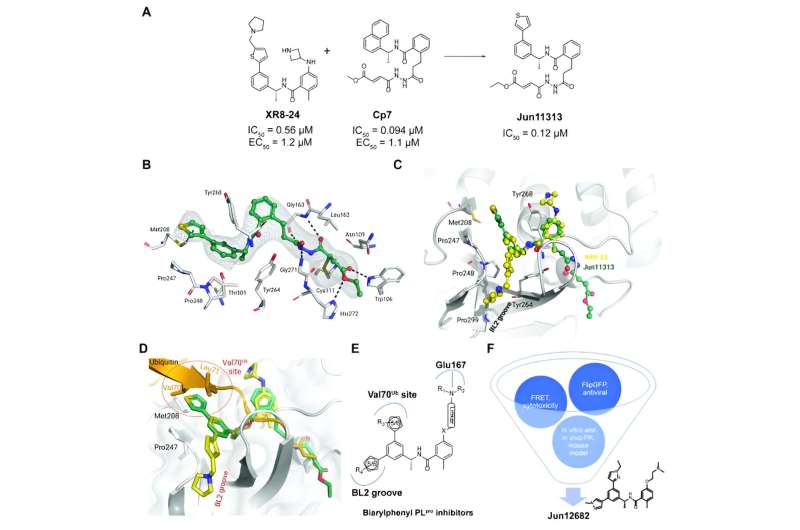This article has been reviewed according to Science X's editorial process and policies. Editors have highlighted the following attributes while ensuring the content's credibility:
fact-checked
preprint
trusted source
proofread
Researchers race to develop Paxlovid replacement

Researchers from Rutgers believe themselves among the leaders in a race to find an oral COVID-19 treatment to supplement or replace Paxlovid—the antiviral medication that helps keep high-risk patients out of the hospital and from dying.
They have published data on the bioRxiv preprint server showing that an alternative medication, a viral papain-like protease inhibitor, inhibits disease progression in animals, a necessary step before human drug trials.
"COVID-19 remains the nation's third leading cause of death, so there's already a massive need for additional treatment options," said Jun Wang, senior author of the study and an associate professor who runs a research lab at Rutgers' Ernest Mario School of Pharmacy. "That need will grow more urgent when, inevitably, COVID-19 mutates in ways that prevent Paxlovid from working."
The Rutgers team hoped to make a drug that interfered with viral papain-like protease (PLpro), a protein that performs important functions in all known strains of COVID-19.
Creating such a drug required detailed information about PLpro's structure, information discovered by researchers from the Arnold Lab at the Rutgers Center for Advanced Biotechnology and Medicine. Precise knowledge of PLpro's structure enabled Wang's team to design and synthesize 85 drug candidates that would bond to—and interfere with this vital protein.
Laboratory testing established that the most effective of those drug candidates, a compound dubbed Jun12682, inhibited several strains of the SARS-CoV-2 virus, including strains that resist treatment with Paxlovid.
Subsequent testing on SARS-CoV-2-infected mice at the collaborator Dr. Xufang Deng's lab at the Oklahoma State University showed that oral treatment with Jun12682 reduced viral lung loads and lesions while improving survival rates.
"Our treatment was about as effective in mice as Paxlovid was in its initial animal tests," said Wang, who added that the experimental drug appears to have at least one major advantage over the older drug.
"Paxlovid interferes with many prescription medications, and most people who face the highest risk of severe COVID-19 take other prescription medicines, so it's a real problem," Wang said. "We tested our candidate Jun12682 against major drug-metabolizing enzymes and saw no evidence that it would interfere with other medications."
More information: Bin Tan et al, Design of SARS-CoV-2 papain-like protease inhibitor with antiviral efficacy in a mouse model, bioRxiv (2023). DOI: 10.1101/2023.12.01.569653



















